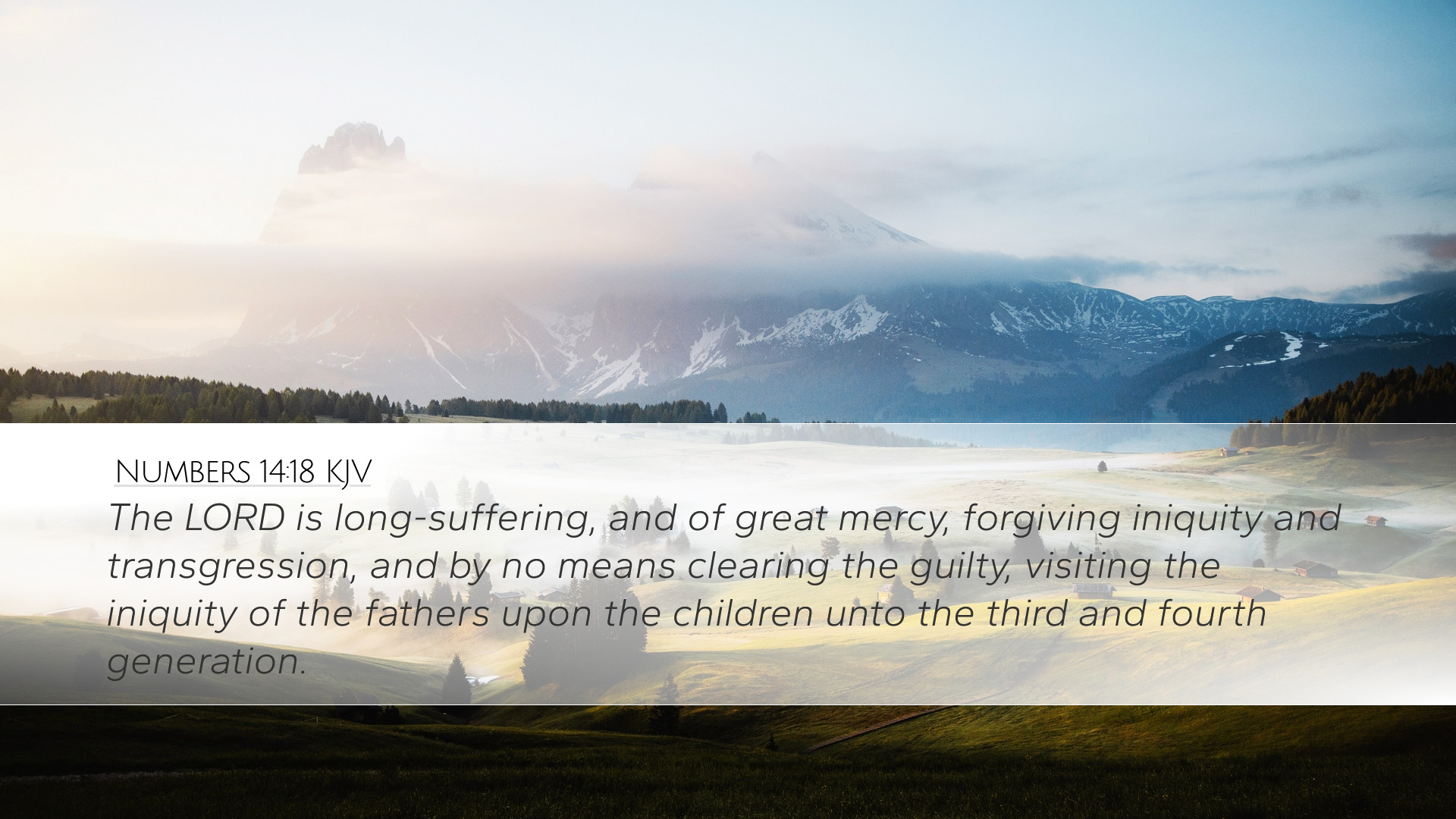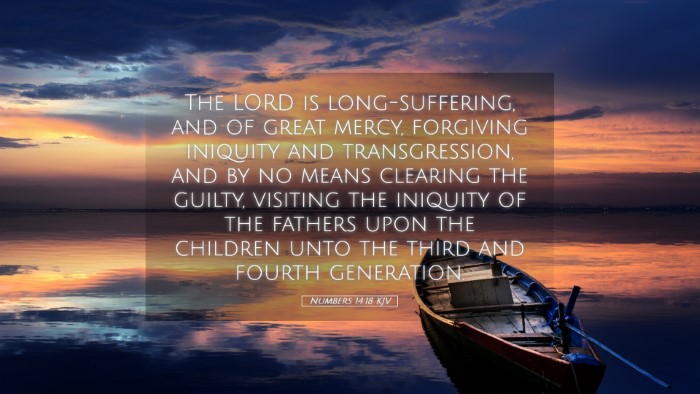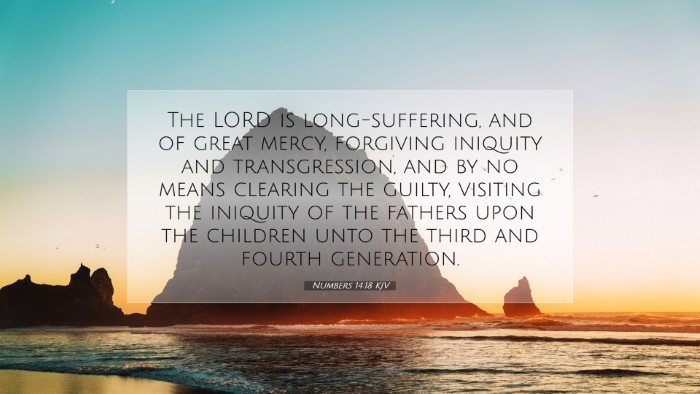Commentary on Numbers 14:18
Numbers 14:18 states: "The Lord is slow to anger, and of great mercy, forgiving iniquity and transgression, and by no means clearing the guilty, visiting the iniquity of the fathers upon the children unto the third and fourth generation."
This verse encapsulates key themes of divine character and justice that resonate throughout Scripture. Below, we shall explore the insights gathered from various public domain commentaries.
Divine Patience and Anger
Matthew Henry emphasizes the extent of God's patience. He notes that God's slowness to anger illustrates His composed nature, allowing ample time for repentance and reconciliation. Henry suggests that this aspect of God's character highlights His willingness to extend grace even in the face of repeated disobedience.
Henry further points out that God's anger is measured and just, not arbitrary. He asserts that while God may be patient, His anger is for a purpose, serving as a necessary response to sin.
The Greatness of God's Mercy
Albert Barnes focuses on the mercy of God, acknowledging it as one of His most profound attributes. He argues that God's willingness to forgive iniquity and transgression underscores His compassionate nature. Barnes urges readers to appreciate the breadth of God's mercy, which offers hope and redemption even to the most wayward of individuals.
This theme of mercy invites theological reflection on the relationship between divine justice and compassion. Barnes highlights that while God forgives, it is essential to understand that forgiveness does not absolve one of the consequences of sin.
Forgiveness and Iniquity
Adam Clarke elaborates on the nature of forgiveness articulated in the verse. Clarke posits that God’s forgiveness is not a blanket pardon; rather, it demands genuine contrition and a turning away from sin. He argues that true forgiveness is transformative, leading the forgiven to live in a manner consistent with their newfound position of grace.
Moreover, Clarke draws attention to the distinction between iniquity and transgression, suggesting that iniquity denotes a deeper, more habitual sin, while transgression refers to overt acts against God's law. This differentiation sheds light on the multifaceted nature of sin and the need for comprehensive repentance.
The Justice of God
The latter part of the verse, which discusses the consequences of sin being visited "upon the children," elicits various interpretations. Matthew Henry notes that this does not indicate that children inherit the guilt of their parents but rather the repercussions that may affect future generations due to the patterns set by previous ones.
Albert Barnes adds that God's justice operates within the framework of familial influences. He explains that while each individual is accountable for their actions, the consequences of a parent's sin may indeed impact their children, highlighting the interconnectedness of community and family in the context of sin and righteousness.
Adam Clarke echoes this sentiment but also cautions against a simplistic interpretation of divine judgment. He stresses that God's visits of iniquity serve as a call to awareness for both the individuals affected and those observing. Clarke encourages a deeper understanding of sin's impact, noting that the legacy of sin can perpetuate cycles of behavior, illustrating the need for communal and familial repentance.
Theological Implications
This verse raises significant theological questions about the nature of God's attributes. There is a delicate balance between God’s justice and mercy, and understanding this balance is crucial for pastors, theologians, and scholars. Scholars often argue that a proper grasp of divine attributes can enrich our understanding of Scripture as a whole.
- Justice and Mercy: The interplay between these two attributes calls for a nuanced theological discourse. It challenges believers to reconcile God’s love with His holiness.
- Generational Consequences: The implications of sin affecting future generations prompt discussions on corporate responsibility and the role of community in faith and practice.
- Need for Repentance: The necessity for personal and communal repentance is underscored, inviting a reflective understanding of how sin affects relationships with God and each other.
Conclusion
Numbers 14:18 is a profound reminder of the character of God—His patience, mercy, and justice. For pastors and theologians, this scripture serves both as a comfort and a challenge. There is hope in God's willingness to forgive, but also a sober reminder of the serious nature of sin and its consequences.
As students of the Word, engaging with this verse encourages a holistic view of God’s nature, prompting believers to strive for repentance while resting in His mercy. This balance is essential for a faithful and transformative Christian life.


